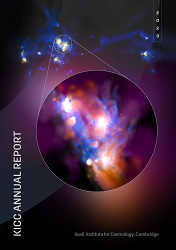I am a cosmologist and statistician working at the interface of theory, observation, and inference. My research aims to understand the properties of the Universe, from its earliest moments to its ultimate fate, by combining cutting-edge data analysis techniques with astrophysical observations.
My group and I develop novel Bayesian machine learning algorithms, particularly focusing on nested sampling and its synergy with Simulation Based Inference. These powerful tools allow us to extract information from complex datasets, enabling us to test cosmological models, constrain the properties of dark matter and dark energy, and search for new physics beyond the Standard Model.
I am a co-investigator on the REACH experiment, which is building a radio telescope to detect the faint signal from the cosmic dawn, when the first stars ignited. I am also active in the GAMBIT collaboration, where we combine data from particle colliders and astrophysical observations to probe the fundamental nature of dark matter and other exotic particles.
My work extends beyond cosmology, with applications in areas such as gravitational wave analysis, exoplanet discovery, and even protein folding. I am passionate about using my expertise to tackle challenging scientific problems and contribute to our understanding of the cosmos.
[Generated with the help of Gemini 1.5]



